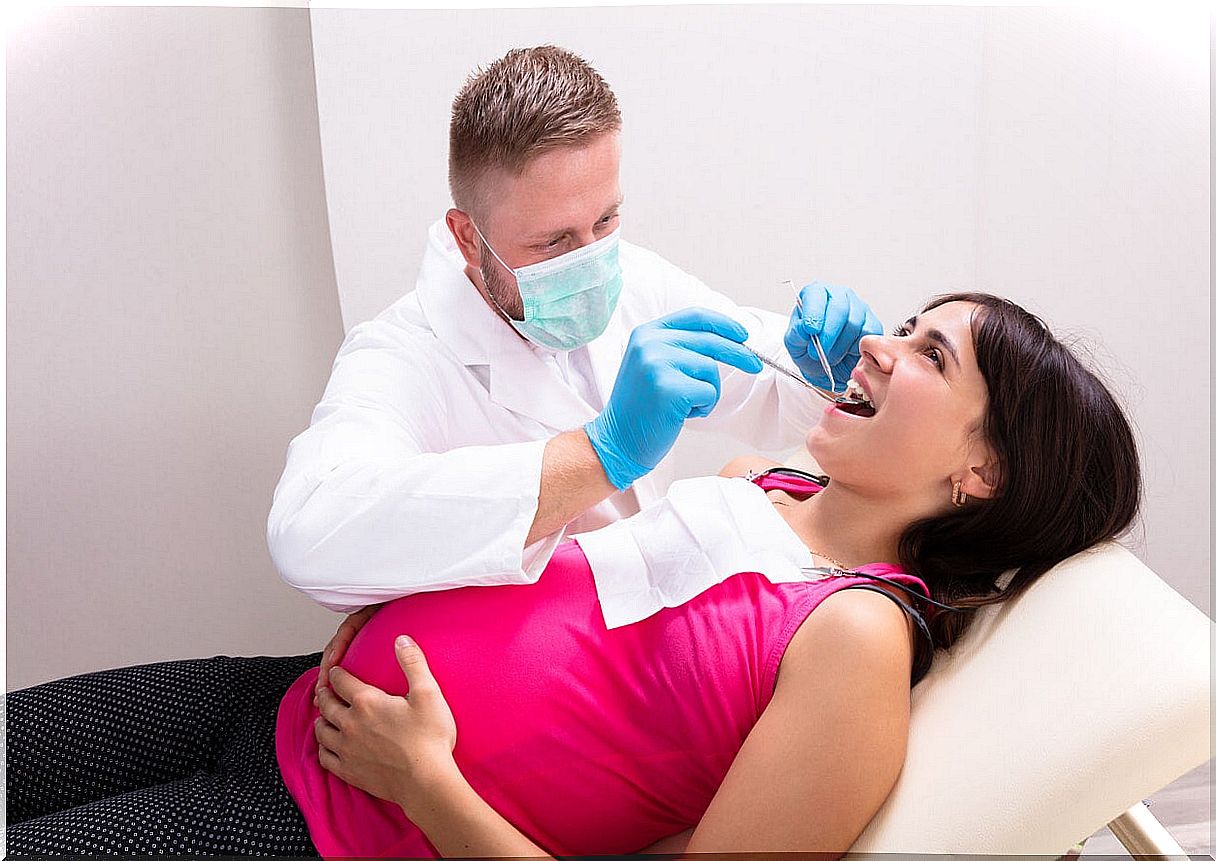Can I Have My Teeth Filled During Pregnancy?

Knowing if it is possible to have fillings in the teeth during pregnancy is a fairly frequent question in pregnant women. It is that many times pregnant women fear going to the dentist because they believe that no procedure is safe during this stage.
The truth is that it is necessary to go to the professional of the mouth during pregnancy to avoid complications. The dentist reviews the oral condition, performs cleanings, places fluoride and determines if there is a need for any specific treatment.
In addition, it will give advice on care in this period of the woman. And, in case of needing any intervention, he will advise the future mother on the best time to do it. Read on to find out what happens to fillings in your teeth during pregnancy.
Can teeth fillings be done during pregnancy?
As we already mentioned, going to the dentist is vital for taking care of the mouth during pregnancy. The professional determines the needs of the case and, based on these, the treatments will be carried out at the most opportune moment.
Sometimes it is necessary to control certain conditions and do the definitive treatments once the pregnancy is over. Other times it is convenient to solve simpler situations in time to avoid complications or complex treatments in the future.

During pregnancy, changes occur that can affect the oral cavity. Nausea and vomiting in the first trimester, hormonal influence, variations in diet and discomfort when brushing due to gingival inflammation favor the appearance of cavities.
This frequent disease consists of the loss of minerals from the teeth. It starts out looking like simple stains, but as they progress they destroy the structure of the tooth. If it continues untreated, it can cause pain and infection.
With fillings, decayed teeth can be treated. It consists of removing the damaged tissue and replacing it with an artificial material that restores the shape and function of the tooth.
Tooth fillings during pregnancy are simple treatments that can be performed safely, as this therapy does not affect the fetus or the mother. Thus, with this simple intervention, active cavities can be controlled. If these are not resolved, they can evolve into infections or intense pain that alter the pregnancy. These complications are associated with the appearance of contractions, premature deliveries or children with low birth weight.
What should be taken into account when having teeth fillings during pregnancy?
When going to the dentist, the pregnant woman should always notify or remind her of her condition. The dentist will take into account the gestation period, the mother’s state of health and the needs of the mouth to determine the type of treatment to be performed.
Although, as we mentioned, fillings are a safe treatment during pregnancy, there are certain considerations that dentists often have. These are the following:
- Time when they are performed : the second trimester is the ideal one for the realization of fillings in the teeth during pregnancy. At this stage, nausea, vomiting and the moment of organ formation of the fetus have passed. Therefore, in the first three months of pregnancy, only urgent interventions that cannot wait should be performed. After the third month, the mother will be more comfortable on the couch, since the belly has not yet grown too much. In the last trimester, sitting for long periods of time in the same position plus the weight and size of the belly can make the process difficult.
- Anesthesia : the use of local anesthesia at low doses does not harm the fetus. In cases of some underlying pathology or disorders associated with pregnancy, the dentist will choose a milder drug or drug without vasoconstrictors to avoid complications.
- X-rays : in general, they are not necessary for this type of procedure, but if it is unavoidable because the professional considers it so, the radiation doses used in dentistry are not harmful to the fetus. In any case, they should be done with a lead shield over the abdomen and in the least amount possible. Orthopantomograms, which are radiographs of the jaws with much higher exposure, should not be performed.
- Avoid fillings with amalgam : Although there is insufficient evidence to show damage of amalgam to the fetus, it is not used during pregnancy. These restorations are made with an alloy of silver and mercury and it is this last element that is to be avoided during pregnancy. The dentist has other safer and more aesthetic materials to restore the teeth.

Oral care in pregnancy is essential
We have already mentioned that the changes inherent to pregnancy can predispose women to suffer from diseases in the mouth. Oral health care is essential to avoid discomfort and more serious consequences.
Brushing your teeth and gums three times a day with a soft bristle brush and fluoride toothpaste is vital to removing plaque. This should be supplemented with the use of dental floss. The pregnant woman should not stop cleaning, even if she has retching or sensitivity, as the accumulation of bacteria in the mouth worsens the conditions.
A healthy, balanced and varied diet must also be taken into account. Foods with high sugar content should be avoided, since in addition to being unhealthy, they favor the development of cavities.
Likewise, visiting the dentist frequently during pregnancy is necessary. One visit per quarter is recommended, although it should be consulted immediately in an emergency. Confidently going to the dentist and following his recommendations allows the pregnant woman to keep her mouth healthy during this important stage.










